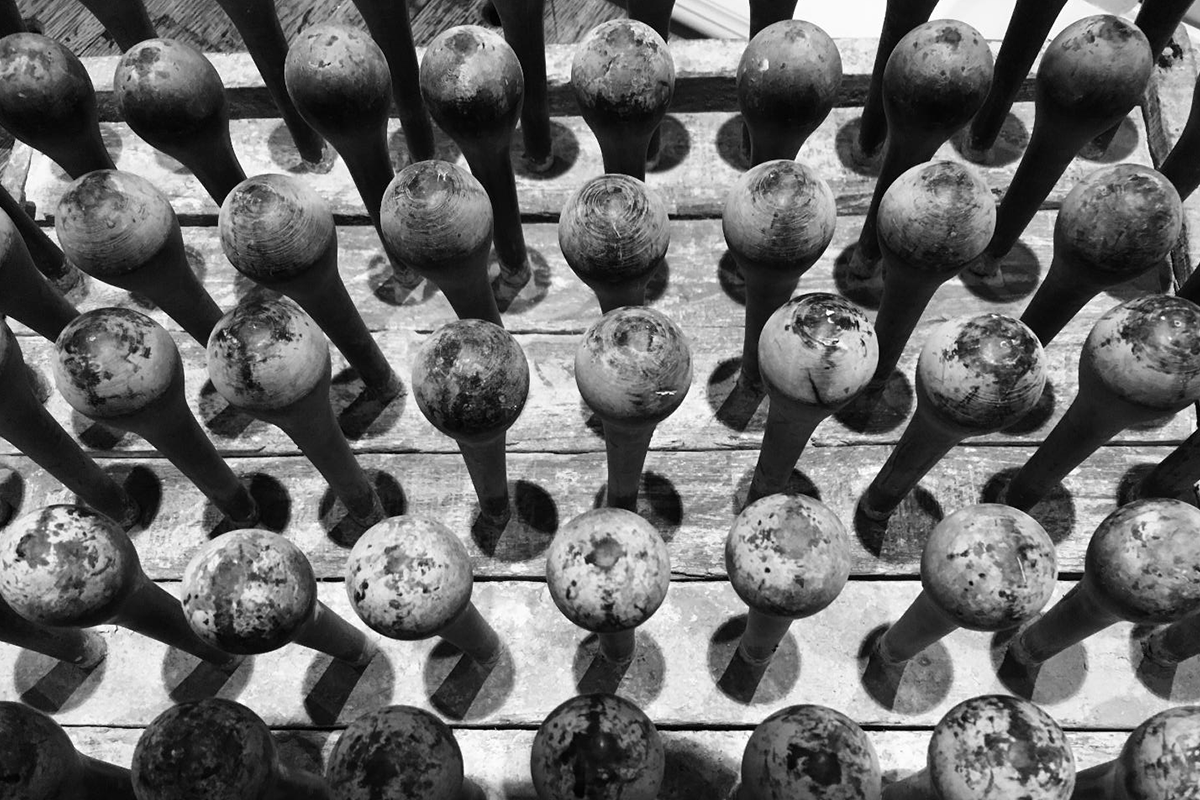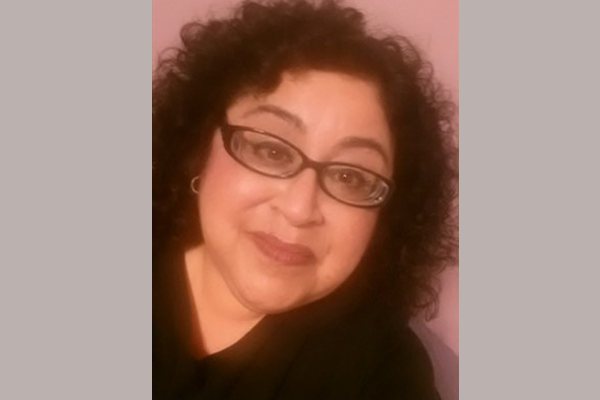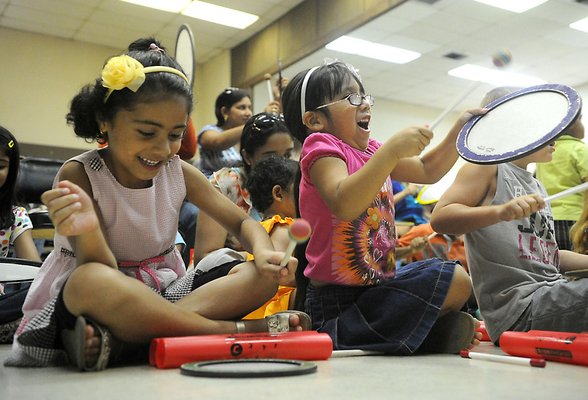La Curandera

It is 3 a.m. and I am lying on a cot in the bathroom of my grandmother’s hospital room, listening to other family members snoring away.
Angie has been unresponsive for a few days and my family is keeping vigil. I know her end is near, but I can feel her presence, still hanging in.
She has had health issues most of her adult life, then suffered a major stroke a few years ago. Unable to care for herself, she has been in a 24-hour care facility. It has devastated me to see her – one of the most vibrant women in my life – unable to move or speak.
During a recent trip to Europe, I lit a candle for Angie in every church I entered and prayed to God to give her peace.
Now I slowly get up, trying not to make any noise. I make my way around the other cots, step over an uncle. I sit at the edge of the hospital bed. I lean in, practically lie down right next to Angie. I kiss her cheek and take in her smell. I lay my head on her shoulder.
I can see her old heart surgery scar, peaking out the top of her hospital gown. I was about 3 years old when she had that surgery. Holding my parents’ hands, walking down the LA County hospital ward past the long line of beds, we found her sitting up, her chest stitched, looking worn but determined. She smiled big upon seeing us and patted her hand on the bed for me to come sit by her.
As Angie’s first grandchild, I grew up calling her “Mom” (my own mother was “Momma”). That is how I heard my Dad address her, but she was also adamant that she was never to be called “Grandma.” Other grandchildren would later transform her into “Mom Angie.” Then she became just “Angie.”
* * * * *
Angelina Carrillo Quintero was born to on October 1, 1924 in Dawson, New Mexico, a coal-mining town. Her sister Carmen arrived a few years later. Her father had a previous wife who passed away, so Angie had half-sisters who lived with relatives in Mexico. After Primitivo died of pneumonia, Maria took in boarders to help supplement her income – and later married one of them, Jesús Hernandez. They had two more children. As the oldest child and not his actual daughter, Angie was often the target of her stepfather’s bad moods, but she did not fight back; she endured it rather than have him take it out on her mother and sister.
After the family relocated to East Los Angeles, Angie met and married my grandfather, Joe E. Quintero. It was a toxic marriage; she was physically and mentally abused. He eventually left her and started another family. She persevered and raised her four children as a single mother. Some say it was her determination and survival instinct that bonded her to her children and grandchildren. However for me, my connection to Angie was more than that; it was something magical.
I must have been about 2 years old when my parents and I stayed overnight at my maternal grandparents’ house. It was early morning, my parents were still asleep, but I was awake in my playpen. I looked up to see Angie standing in the hallway. As I called out to her, she turned and walked away. I managed to climb out of the playpen, but by the time I reached the living room, there was no sign of Angie. I later told my mother what had happened, to try to figure out how Angie had disappeared so quickly, but she just shook her head and told me, “You must have dreamt it.”
When I recalled the incident as an adult, I could still feel the pain from hoisting myself over the side of the playpen. I mentioned it to Angie. She smiled and explained that when I was little, she was not able to see me as much as she had wanted. My mother, being a new parent, preferred to be at her own mother’s house. My vision that morning must have been one of the times that Angie was thinking about me.
And yet there was a period when she chose not to see me. When she discovered that my Dad had begun to communicate with his estranged father, she showed up at our house one evening, shouting that my Dad was being disloyal. My siblings and I were sent to our bedrooms, but I crept down the hallway. I peeked out and caught her eye as she announced that she was disowning us. I saw a slight hesitation but she looked at my Dad again, yelled some more, turned and stormed out the front door – slamming it behind her. It was about a year before we were allowed at family get-togethers. I cannot think of any other time that she was not a part of my life.
Angie had a love and respect for Mother Nature. She was a curandera (medicine woman). She knew of plants and herbs and their medicinal qualities. Her yard was filled with aloe vera, lavender, rosemary and sage.
I contracted scarlet fever when I was about 6 years old. I was seen by my pediatrician, but the high fever persisted. Angie was called. In my haze, I remember her praying and laying her hands over me. I can still smell the incense and the burning herbs. She sang in a whisper, yet she loudly ordered the illness to leave my body. Soon after that, the fever broke.
One of her favorite plants was the “Snake” plant; its long leaves grow straight up and end at a sharp point. She believed that growing it brought good luck. It is also difficult to kill. Angie would break up a plant with her bare hands, re-pot the pieces in coffee cans and then give those away to family and friends while praising the benefits. I later discovered that it is a treasured plant in Chinese folklore.
Angie taught me both practical and spiritual life lessons. After I earned my undergraduate degree, I took on night-time internships in Hollywood and could then drive Angie to errands and doctors’ appointments during the day. She taught me all of her shortcuts and the ins-and-outs of getting around Los Angeles. I also learned about the “Parking Angel.” Whenever we were on our way to a high-traffic location, Angie would pray and ask an Angel to go on ahead of us and secure our parking space. By the time we arrived at our destination, a parking spot was always open.
Angie also channeled a Mexican Indian spirit; she would meditate until she was in a state where she allowed her body be taken over by her “spirit guide.” His name was Piel Rojo, literally translated as “red skin”, but intended as “man of the earth color/ man of the earth.” Through channeling, Piel Rojo passed on knowledge to Angie, for her to gain insight – to help herself and others.
One summer when we were in Puerto Vallarta, Mexico, Angie hired a driver to take us north into the state of Nayarit. The road was bumpy as we travelled through heavy jungle. Eventually we arrived at a small, lone house. We were greeted by a young girl and led into a sparsely furnished bedroom. We sat down on one of the twin beds. On top of the chest of drawers was a familiar display; a cross, statues of various saints, a rosary, and several lit candles. The scent of incense lingered in the air. I was exhausted from the rough trip and humidity, but Angie was alert and ready.
In walked an older woman; she and Angie greeted each other warmly. Angie introduced me as her granddaughter. The woman prayed over us, blessed us, and then did our readings.
“Te toca ahora (It’s your turn now),” she said to Angie when she finished.
Angie closed her eyes, took in deep breaths, blew them out. She stood up, pounded her fists to her chest and stomped in place.
“iYo soy Piel Rojo! (I am Piel Rojo!)” came a deep baritone voice.
Piel Rojo then spoke about the strength achieved when a family works together. He threw his arms into the air and called upon my ancestors to help guide my family and me, to lead us to harmony and success. I was advised to form a family business.
I felt the presence of unseen others in the room. A few burning candles went out.
Piel Rojo closed his eyes, again took in deep breaths, blew them out. There was no movement, just silence. Then Angie opened her eyes and smiled.
* * * * *
I think that Angie knew that her health was going to take a turn for the worse. A few months before her stroke, I was late in picking her up for an outing. My morning schedule had been disrupted; I was frustrated and not very talkative as I got her settled in my car and we took off.
“I want you to know I appreciate everything that we have done together,” she said, breaking the silence.
Angie spoke of all the times we had spent together, that she would never forget when I had taken her to the Indian pow wow or to see Los Lobos perform. I felt immediate guilt for being so stressed out and in a hurry. I swallowed the lump in my throat, took a deep breath, blew out all the negative energy, decided to let it all go and enjoy the rest of the day with her.
And now I know I need to help Angie on to her next journey.
I sense that Angie is hanging back because she is worried about us, her family.
In my head, I call out to my great-grandparents Maria and Primitivo, to Piel Rojo; I ask them all to guide Angie to her next destination.
I whisper in her ear, “It’s OK. We will all be OK. You can let go.”
I lay with her for a while longer, until I feel that her spirit has moved on.

October 30, 2017










